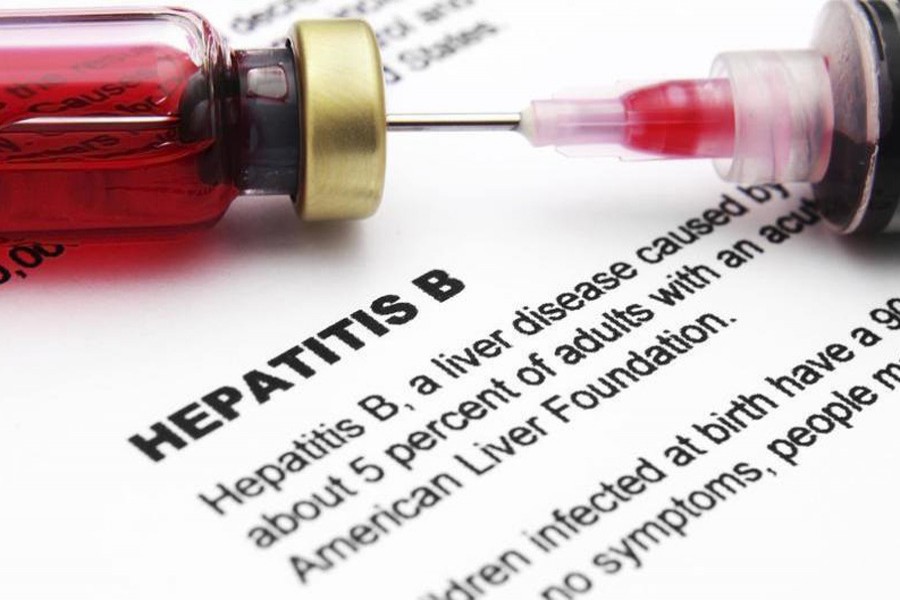Hepatitis B is an infection of the liver. It can cause scarring of the organ, liver failure, and cancer. It can be fatal if it isn’t treated.
Zainal Abedin, a 12-year boy who lived in Gobaria village under Kulairchar upazila in Kishoreganj, died in 2002 after suffering from hepatitis B virus.
Since Zainal was infected with the deadly virus, none of his family could imagine that the promising boy was inching toward death silently. Without realising the extreme consequence of the virus, the unconscious parents firstly sent him to a local shaman, commonly known as kabiraj, to get treatment of the disease.
One day, Zainal’s condition deteriorated severely. He started vomiting as his stomach was not functioning well. His guardians tried their best to save the life of their boy, but time was over. Zainal died of the hepatitis B on the way to a hospital.
Two years after Zainal’s death, one of his cousins also died after suffering from hepatitis B. But, gone are the days when many children died of HBV infection every year.
Meanwhile, the hepatitis B vaccine is invented, which is saving lives of children from the deadly virus infection in Bangladesh.
A new icddr,b study found that the hepatitis B vaccine programme in Bangladesh is highly effective in preventing chronic hepatitis B virus (HBV) infection among children.
The International Centre for Diarrhoeal Disease Research, Bangladesh (icddr,b), an international health research organisation located in Dhaka, conducted the study in collaboration with the Institute of Epidemiology, Disease Control and Research (IEDCR), Bangladesh, the US Centers for Disease Control and Prevention (CDC), the World Health Organization (WHO) and the Stanford University, the USA.
According to the WHO Global Hepatitis Report, 2017, the hepatitis B virus infects the liver, and poses a serious threat to newborns whose mothers are already infected as this blood-borne disease can spread during birth.
The icddr,b study indicated that the three-dose vaccine, as part of the current hepatitis B vaccination programme in Bangladesh, was highly effective in preventing chronic HBV infection among children, even though a birth dose was not given.
Children under age 6 years, if infected with the HBV, are the most likely group to develop chronic infections, which can lead to cirrhosis (scarring of the liver) or liver cancer. About 257 million people are living with HBV infection worldwide, said a UNB report.
“Our study examined the presence of antibodies against HBV in over 2,000 children across the country and found evidence of very low prevalence (0.05 per cent) of chronic HBV infection in children who were born after the introduction of hepatitis B vaccine in Bangladesh,” Repon Paul, first author of the icddr,b study, said on a recent webpost.
Researchers observed that the hepatitis B vaccination programme achieved 94.2 per cent vaccination coverage in Bangladesh, adding that it is best to take the earliest opportunity to vaccinate after birth to prevent both mother-to-child and child-to-child transmission of HBV.
According to them, Hepatitis B is one of five types of viral hepatitis (A-E), which is transmitted through bodily fluids, especially blood. In addition to mother-to-child and child-to-child transmission, it is also transmitted through unsafe sexual contact and medical practices.
The hepatitis B vaccine was introduced during 2003-2005 to the Expanded Programme on Immunization (EPI) in Bangladesh, using the WHO-recommended schedule at 6, 10, and 14 weeks of age. WHO subsequently recommended early vaccination of babies against hepatitis B within 24 hours of birth.


